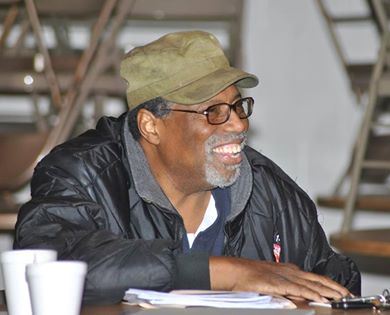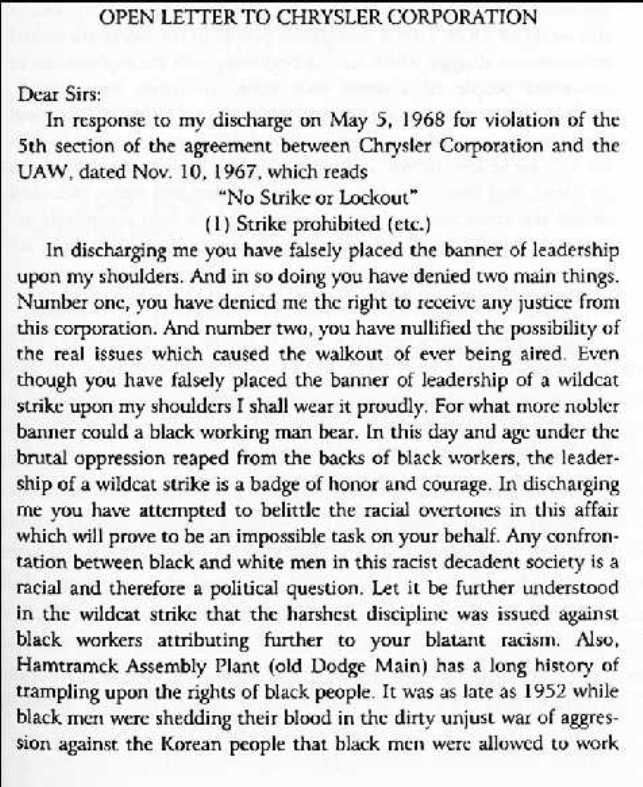ON THE DEATH OF COMRADE GENERAL G BAKER
September 6, 1941—May 18, 2014
From the People’s Tribune Editorial Board
As the People’s Tribune was going to press, we received word that, after a prolonged illness, Comrade General Baker had died. As an internationally known and respected revolutionary, much has been and will be written about his life and contributions. In future editions of the People’s Tribune we will add our understanding of the significance of his life as one of the era’s most effective revolutionaries. Through the centuries of struggle for the freedom of the working people, we have said farewell to numberless fighters.
What they fought for, what they believed in, far outlasts the memory of what they did. The vision of a new world of peace and freedom crowned the legends of struggle led by General Baker. The ruling class knows how to deal with the spontaneous uprisings of the people, no matter how heroic they may be. What they fear most, what they can never defeat, is a mass in motion, guided by vision. Comrade Gen’s life is summed up as the effort to organize the scattered demands of the exploited into a vision, to organize the fighters around that vision. In his final days, General Baker said to the family and comrades gathered around him, “Carry on!” We say farewell to Comrade Gen with the pledge of revolutionaries over the centuries, “This fight will go on until we win!”
This article will appear in the June, 2014 edition of the People’s Tribune. We encourage reproduction of this article so long as you credit the source. Copyright © 2014 People’s Tribune. All rights reserved. Visit us on the web at http://www.peoplestribune.org/
CELEBRATION OF GENERAL BAKER’S LIFE:
SATURDAY MAY 24, 2014 4 P.M.
UAW LOCAL 600
10550 Dix Ave, Dearborn, MI 48120
Pastor Edwin Rowe of Central United Methodist Church presiding
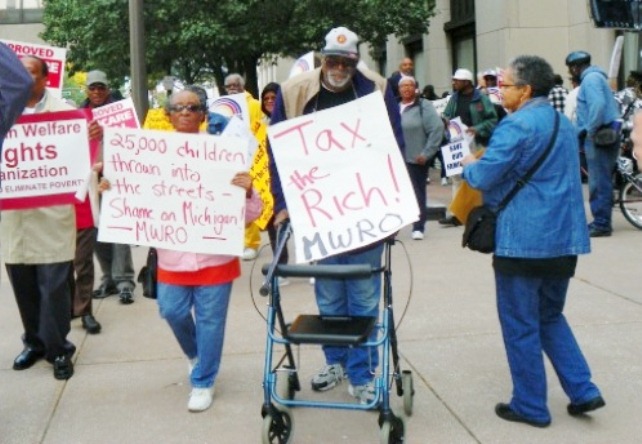
General Baker (center) with his wife Marian Baker at right, during the Sept. 29, 2011 Michigan Welfare Rights Organization protest against state cut-off of thousands of families and children. Photo: Diane Bukowski
GENERAL GORDON BAKER — A HISTORY
www.speakersforanewamerica.com
April 6, 2011
General Baker [was} an internationally known labor leader and autoworker who championed the cause of the unemployed and unorganized [over his entire lifetime]. General Baker was the first American who refused the Vietnam draft. His case was a landmark in draft resistance, symbolizing the beginning of the anti-war movement.
 He is also legendary for his role in leading black autoworkers in the 1960s Detroit wildcat strikes against automakers and discriminatory union leaders. Baker was a founder of D.R.U.M., and the League of Revolutionary Black Workers.
He is also legendary for his role in leading black autoworkers in the 1960s Detroit wildcat strikes against automakers and discriminatory union leaders. Baker was a founder of D.R.U.M., and the League of Revolutionary Black Workers.
The book, “Detroit: I Do Mind Dying” (about the worker revolts of that era) calls him the soul of the movement. This book is widely recognized as one of the most important books on the black liberation movement and labor struggles in the United States.
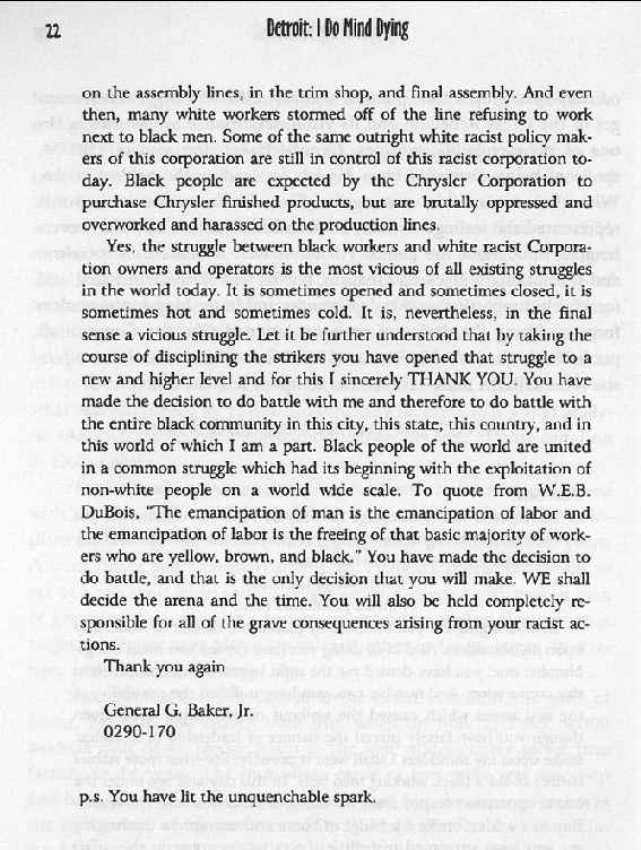 More recently, “The American Dream,” a documentary about labor history, featured him and his family, as well as other historical figures. General Baker also ran for statewide political office in Michigan; led in the statewide effort to support Detroit’s homeless tent city; was part of the North American delegation to the 7th Pan African Congress in Uganda, and has addressed other international gatherings in Europe.
More recently, “The American Dream,” a documentary about labor history, featured him and his family, as well as other historical figures. General Baker also ran for statewide political office in Michigan; led in the statewide effort to support Detroit’s homeless tent city; was part of the North American delegation to the 7th Pan African Congress in Uganda, and has addressed other international gatherings in Europe.
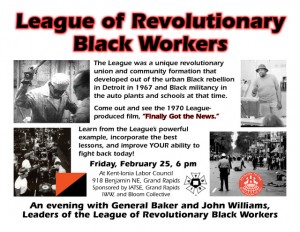 As an autoworker for over 30 years, Baker witnessed robots replace workers on the assembly line, forcing many into the homeless shelters and food lines. His effort [was] always to build unity among different sectors of workers regardless of ethnicity or gender around their common, class interests. General Baker remained one of the few leaders from the 1960’s who continued the struggle for a whole new cooperative world. Baker worked as a furnace operator at Ford Motor Company in Detroit, Michigan, and is past president of the Coke Oven Blast Furnace Unit of the United Auto Workers. He is also a founder and chair of the Steering Committee of the League of Revolutionaries for a New America.
As an autoworker for over 30 years, Baker witnessed robots replace workers on the assembly line, forcing many into the homeless shelters and food lines. His effort [was] always to build unity among different sectors of workers regardless of ethnicity or gender around their common, class interests. General Baker remained one of the few leaders from the 1960’s who continued the struggle for a whole new cooperative world. Baker worked as a furnace operator at Ford Motor Company in Detroit, Michigan, and is past president of the Coke Oven Blast Furnace Unit of the United Auto Workers. He is also a founder and chair of the Steering Committee of the League of Revolutionaries for a New America.
Baker was a convenor of the 1993 conference in Detroit commemorating MalcolmX and celebrating the 25th anniversary of the founding of the League of Revolutionary Black Workers; He was a featured speaker at MIT (1994) and the University of Illinois(Chicago) (1995) at conferences concerning the impact of electronic technology on industry and the community. He has also been featured at: Cleveland State University; University of Massachusetts; State Universityof New York at Binghamton; and the Carnegie Mellon Institute; Howard University Conference on the Columbus Quincentennial.

